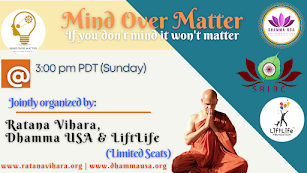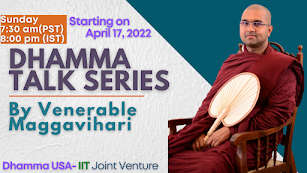The Buddha and Modernist Dichotomies
By Dr. Nivitigala Sumitta (Bhante Sumitta)
(Paraphrase of a section of the article BUDDHISM AND THE FREEDOM OF THE WILL:PALI AND MAHAYANIST RESPONSES by Nicholas F. Gier and Paul Kjellberg Freedom and Determinism: Topics in Contemporary Philosophy, eds., J. K. Campbell, D. Shier, M. O’Rourke (Cambridge: MIT Press, 2004), pp. 277-304.)
In their analysis of Buddhist perspectives on free will and determinism, Nicholas F. Gier and Paul Kjellberg explore how Pali and Mahayanist traditions address these philosophical issues. They highlight that both traditions grapple with the interplay between freedom and determinism, yet they approach these concepts differently. The Pali tradition, with its emphasis on the principle of dependent origination, sees actions as interdependent rather than the result of an independent self. This view supports a form of moral responsibility grounded in intentionality rather than inherent free will. In contrast, Mahayanist thought, while also accepting the fundamental interconnectedness of events, introduces more nuanced views on the potential for achieving liberation and the role of individual agency within the broader cosmic order. Both traditions offer a rich dialogue on how personal agency operates within a framework of causal dependencies, challenging simplistic notions of absolute freedom or determinism.
Modernist thought is characterized by its tendency to create dichotomies, drawing sharp lines between subjects and objects, inner and outer realms, private and public spheres, as well as separating fact from value and religion from science. While these distinctions can be useful, postmodern critiques have highlighted their significant drawbacks. For instance, if free will is considered a purely subjective experience and causality an objective one, and if free will operates solely within an internal domain, then reconciling free will with moral responsibility becomes a critical issue. This perspective naturally leads to related philosophical problems, including questions about the nature of the external world, the knowledge of other minds, and the existence of moral facts, which are central themes in modern European philosophy.
In contrast, the extensive teachings of the Buddha from his 45 years of philosophical discussions do not reflect these modernist concerns. Was the Buddha’s approach to reality and knowledge overly simplistic, or was he correct in his assumptions? By not drawing a firm distinction between inner and outer realms, the Buddha’s perspective avoids the modernist problems associated with free will and external causality. Both the Buddha and William James, a notable modern philosopher, suggest that basic experience does not split into separate inner and outer dimensions. Instead, they see the inner and outer as interrelated, with each influencing the other. This view challenges the Cartesian separation of inner mental experiences from the outer physical world. Moreover, the Buddha’s empiricism parallels James’s radical empiricism in that both reject the divide between facts and values, acknowledging that emotional and value-laden experiences shape perception and reasoning.
Critics might concede that inner and outer experiences are interconnected but argue that personal inner experiences do not seamlessly connect with another person’s inner experiences. Buddhists, however, reject this criticism, citing their own claims of extrasensory perception (ESP) and mind-reading abilities. The Buddha and his followers reportedly possessed the ability to perceive others' karmic balances. While the validity of such claims is debatable, there is an argument to be made that people can indeed infer others' thoughts and feelings through non-verbal cues and body language. This ability to read others is seen by Buddhists as a potential that anyone can develop through heightened mindfulness. In Buddhism, mindfulness (sati) is more accurately described as the faculty (indriya) through which one manages the six senses, including the mind, and advances in moral and spiritual development.
End Notes:
9. See Spiritual Titanism, chapter 2 and the Series Introduction by David Ray Griffin in any volume of SUNY Press’s Series on Constructive Postmodern Thought.
10. Mahavedallasutta, I.293.














































0 comments:
Post a Comment
Your comments and feedback are very helpful to us in improving our posts. We really appreciate your time. Thank you!
Dhamma USA Team.